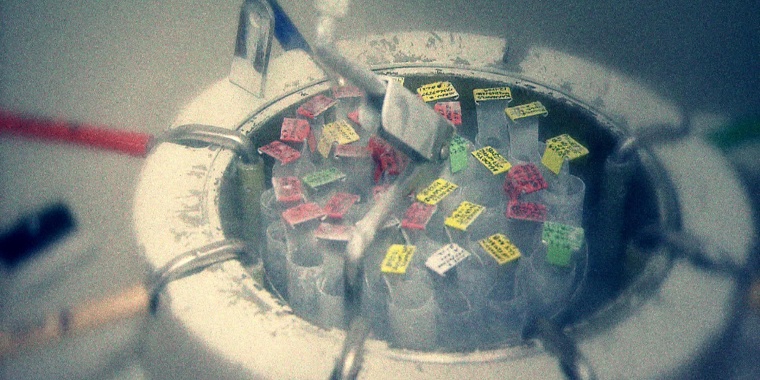A major malfunction at an egg freezing facility in Cleveland may have caused the loss of at least 2,100 frozen eggs and embryos, affecting between 500 and 600 families.
A long-term storage tank containing liquid nitrogen at the University Hospitals Fertility Center in Cleveland experienced an apparent equipment failure over the past weekend, allowing the temperature to become warmer than it should. As a result, many of the eggs and embryos — some of which have been stored for decades — may no longer be viable, Patti DePompei, president, UH MacDonald Women's Hospital and UH Rainbow Babies & Children's Hospital told NBC News.
"We don't know the reasons why yet," DePompei said. "But we do know that the temperature that was measured at a portion of the tank was higher than our acceptable limits."
After a woman goes through an egg freezing process, the frozen eggs are stored in liquid nitrogen tanks in a cryogenic facility where they are typically monitored with video surveillance and alarm systems. DePompei said the Cleveland facility has an alarm but declined to give more specifics until an investigation by an outside expert is complete.
"Obviously the situation that occurred here is devastating for the families involved, and it's devastating for our physicians and our nurses and our staff as well," said DePompei.
University Hospitals has been reaching out to patients who can decide how to proceed — the only way to know if an egg or embryo is still viable is to thaw and implant it. The hospital says it will not destroy any of the eggs or embryos and has moved them to a working tank.
Whether fertility procedure fees for the affected patients will be waived is unclear. "We are working very very carefully to determine how we can best support them through the process," said DePompei.
Egg freezing has become an increasingly popular way for young women to preserve their fertility. In 2015, more than 6,200 women froze their eggs, according to the latest figures from the American Society for Reproductive Medicine. Although the price of egg freezing has come down in recent years, the costs can range from at least $12,000 to $14,000 for a woman to undergo the procedure.
There is no record of a similar malfunction at any other fertility clinic in the U.S., a spokesperson for ASRM said.
"Our hearts go out to the patients who have suffered this loss," said Sean Tipton, chief policy officer at ASRM. "We will work with our member clinics to help them take any steps needed to ensure such an event never happens again."
